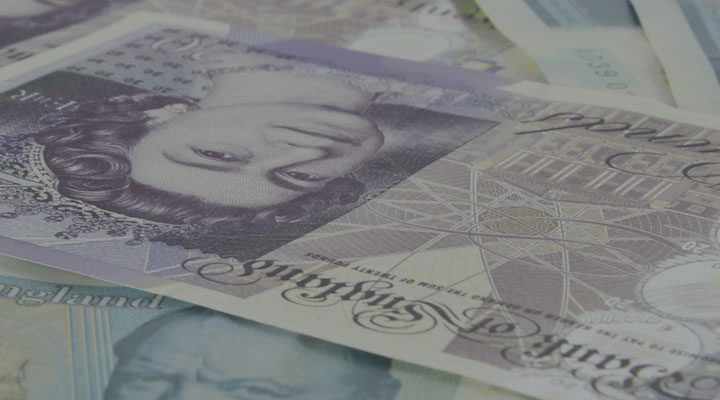What you need to know about a cash ISA
A cash ISA could be the ideal solution if you’re looking for a tax-free way to save your money. While cash ISAs typically offer lower interest rates than other types of savings accounts, they’re still a key part of many people’s savings portfolio.
In this article, we explain what a cash ISA is, how it works and summarise the different types of cash ISAs that are available. We also consider whether it’s better to open a cash ISA or another type of savings account.
The information provided here is for informational and educational purposes only and does not constitute financial advice. Please consult with a licensed financial adviser or professional before making any financial decisions. Your financial situation is unique, and the information provided may not be suitable for your specific circumstances. We are not liable for any financial decisions or actions you take based on this information.
What is a cash ISA?
A cash ISA is a type of savings account that lets you earn interest on your savings without paying tax. Any UK resident aged 16 or over can save up to £20,000 in a cash ISA in the 2025/26 tax year, which runs from 6 April 2025 to 5 April 2026.
There are various types of cash ISAs on the market. The best option for you will depend on your savings needs. The main types of cash ISA are detailed below.
- Easy access ISAs – Easy access ISAs allow you to deposit and withdraw money any time you wish without incurring a penalty, although some providers may impose a limit on how many times you can do this.
- Regular savings ISAs – A regular savings ISA usually pays a fixed interest rate if you pay in the same monthly amount. You can save up to £1,666 per month without exceeding the £20,000 annual ISA allowance.
- Notice ISAs – A notice ISA is almost a hybrid of an easy access ISA and a fixed rate ISA. It tends to pay better interest rates than easy access ISAs, but you need to give a set amount of notice when you want to make a withdrawal. The notice period varies between providers but it typically ranges from 30 to 120 days.
- Fixed rate ISAs – A fixed rate ISA lets you lock away a lump sum of money for a set period in exchange for a competitive interest rate. Terms normally range from one year to five years, with longer fixed periods usually offering the highest interest rates.
There is also a special type of cash ISA, known as the lifetime ISA, designed to help people save for a first home or retirement. You can put a maximum of £4,000 per tax year into a lifetime ISA and receive a 25% bonus from the government (up to £1,000 per year). However, you can only open a lifetime ISA if you’re aged 18 to 39.
How does a cash ISA work?
You can put all of your ISA allowance into a cash ISA or you can divide it across other types of ISA, but your total contributions must not exceed £20,000. For instance, you could pay £8,000 into a cash ISA, £7,000 into a stocks and shares ISA, £4,000 into an innovative finance ISA and £1,000 into a lifetime ISA.
Some cash ISAs allow you to withdraw money and then return it to your account without it affecting your annual ISA allowance. These are known as flexible cash ISAs. If your account doesn’t have this flexibility, any funds you withdraw and later reinvest will reduce your current year’s ISA allowance.
You can have multiple cash ISAs, but you can only open one of each type of ISA in any given tax year. So, for example, if you opened a cash ISA in December 2024, you won’t be able to open another ISA until 6 April 2025.
You can read more about how ISAs work on our website.
Is a cash ISA right for me?
Whether a cash ISA is right for you will depend on your individual circumstances. Following the introduction of the personal savings allowance (PSA), basic rate (20%) taxpayers can earn up to £1,000 in interest without paying tax on it. Meanwhile, higher rate (40%) taxpayers can earn up to £500 in tax-free interest. This means the majority of savers no longer need the tax-free advantages of an ISA.
If your savings income is unlikely to exceed your PSA, it’s a good idea to consider non-ISA savings products. That’s because the top-paying traditional savings accounts tend to offer more competitive interest rates than most cash ISAs.
However, if you have substantial savings, or you’re a high earner, ISAs can be very useful. Savings in an ISA don’t count towards your PSA, so if you’ve used up your £1,000 or £500 allowance, an ISA can still allow you to earn tax-free interest. Likewise, if you aren’t entitled to the PSA because you’re an additional rate taxpayer, an ISA can help to minimise your tax liability.
How to transfer into a cash ISA
You can transfer money from previous ISAs into a new cash ISA account, providing you can access your funds and your new provider accepts transfers. With many cash ISAs offering very low rates, it’s worth researching the market to see where you can find the best deal.
Consolidating old cash ISAs into a new account that pays a higher rate will boost your returns and make it easier to manage your savings. It will also make future transfers much simpler.
If you do want to make a transfer, it’s important to follow the correct procedure. Never withdraw and then reinvest your savings yourself as this will count towards your ISA allowance for the current tax year (unless you have a flexible ISA).
Instead, contact your ISA provider and request a transfer form. Your new provider will manage the switching process on your behalf and your money won’t lose its tax-free status.
Is a cash ISA a safe investment for my money?
Yes, providing your ISA provider is protected by the Financial Services Compensation Scheme (FSCS). Under the FSCS, savings held in a UK regulated bank are protected up to £85,000 per eligible person, per bank.
It’s also worth remembering that cash ISAs are a risk-free alternative to other investment options such as stocks and shares.
What’s the best cash ISA?
Choosing the best cash ISA usually means finding the one with the highest interest rate, as you’ll receive a better return on your investment. You should also weigh up other features and benefits, such as flexible withdrawals, and compare the terms and conditions governing the notice periods and penalties for early withdrawal.
Ultimately, the best cash ISA will depend on your personal preferences and savings goals. For example, if you want to save over the long term, a fixed rate cash ISA will be more suitable than an easy access cash ISA. That said, if you don’t need the tax-free perks of an ISA, it’s worth looking at alternative savings products.
Alternatives to cash ISAs
Unless you have substantial savings, or you’re an additional taxpayer, it makes sense to consider non-ISA products as these typically offer higher rates.
If you like the idea of locking your money away for a set period, a fixed rate bond may be a good alternative to a fixed rate ISA. Unlike fixed rate ISAs, there’s no £20,000 limit on deposits into a fixed rate bond – in some cases the maximum deposit can be as much as £2,000,000. You can read our article – fixed rate bonds vs ISAs – for a more detailed comparison.
However, if you require more flexibility, you might want to think about a notice account. They work in a similar way to notice ISAs in that you need to give a short notice period to your provider, typically between 30 and 90 days, to access your savings. Once again, you’re not limited to a £20,000 cap, but you can still earn a more competitive interest rate.
If you’re looking for an alternative to an instant access cash ISA, a simple easy access savings account may be a good option. This is ideal for short-term savings goals, and you can enjoy the freedom to withdraw and top up your money at your convenience. Visit our website for more information on the differences between ISAs and savings accounts.
Compare savings accounts with Raisin UK
Although we don’t currently offer ISAs at Raisin UK, you can compare and open other types of savings accounts from our partner banks through our marketplace.
Simply register for a Raisin UK Account and log in to apply for your chosen savings account.
If you have any questions, our UK customer services team will be happy to help.
Save smarter with the Raisin UK newsletter!
What’s in it for me?
- Receive exclusive updates on market-leading rates
- Ensure you never miss a bonus offer
- Keep your finger on the pulse with the latest financial news


